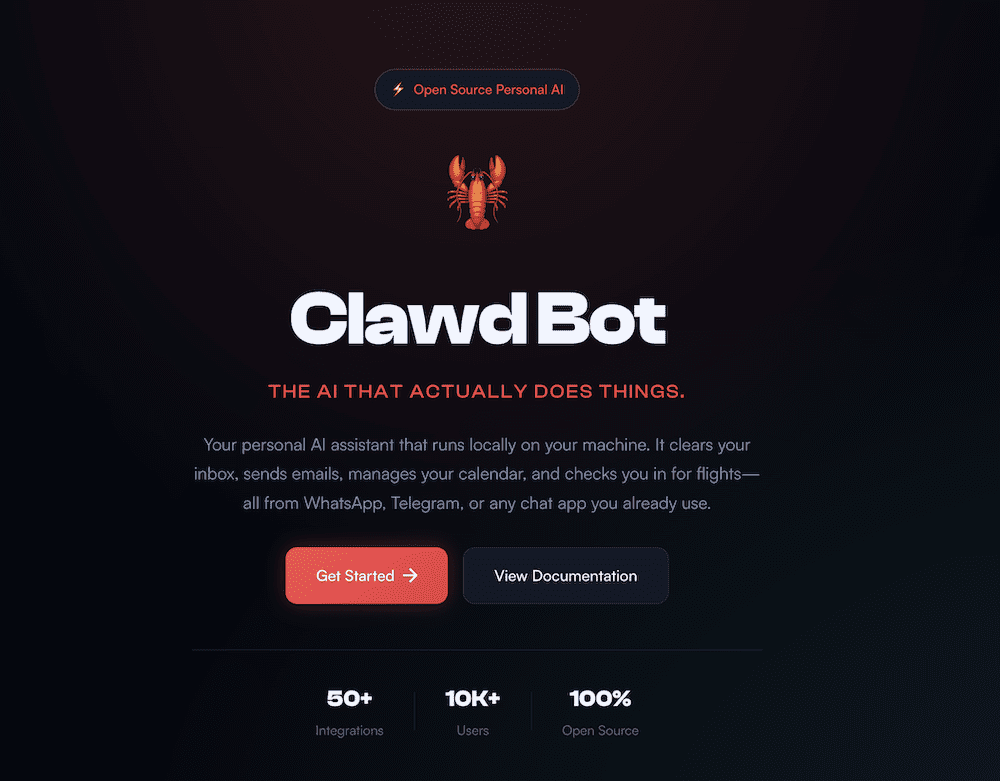The duration of storing video call recordings has become an important point to consider in today’s hyper-connected world. Especially with the rise of remote work trends and the universal nature of video communication in our globalized society, video calls, once seen as fleeting exchanges, now serve as lasting records of crucial business interactions, documenting essential meetings, cross-functional communication and collaborative brainstorming sessions.
Video meetings have in fact saved many businesses money on things such as travel, but also time and resources in the long run. Ultimately, the rise of video meetings are a massive win for all companies, particularly those looking to get super creative….
@tldv.io Loooove the support … but also #uxdesign #uxresearch #design #tech #corporate #startup #aitools
♬ original sound - tldv.io - AI Meeting Recorder
Also, when video calls are saved and archived correctly, these recordings can also offer invaluable insights, directly influencing business strategies, enhancing teamwork, and cultivating a culture grounded in transparency and trust.
Yet, with the growing importance of these recordings, organizations are grappling with questions about optimal retention periods.
How long should a recording be kept to maximize its utility while also adhering to best practices and regulatory guidelines?
The answer isn’t as simple as a specific time. And depending on what the call is about, it’s intertwined with considerations of the content’s immediate value, technological constraints, legal stipulations, and ethical boundaries. This also encompasses potential historical significance where even if immediate value is lost, archival may be essential for future insights.
Handling these considerations requires a clear understanding of the recording’s intent, potential future implications, and the evolving landscape of video communication in the business world. As well as a clever tool to make things easier.
Ideal Duration of Video Call Recordings Storage
The topic of the duration of storing video call recordings has taken center stage, especially for modern SaaS companies relying on digital communication. But how long should these recordings be retained?
Several factors weigh into this decision:
Purpose of the Call: The content and importance of the call matter. High-stakes business negotiations or strategy discussions might warrant longer storage durations, serving as references or evidence in potential disputes. On the other hand, routine team meetings or informal chats might not necessitate prolonged retention.
Regulatory Requirements: Industries such as finance, healthcare, or law may face strict regulations on communication record storage. Complying with these mandates is crucial to avoid legal repercussions. As societies evolve, so too do their attitudes toward privacy, making it crucial for companies to regularly update their knowledge. Whether it’s a minimum or a maximum duration, organizations need to be aware of these dynamic regulations.
Storage Constraints: Every recording occupies digital space. As the volume of recordings grows, storage can become a challenge, both technically and financially. Companies must balance the value of retaining a recording against the costs and logistics of storage.
The Technical Aspects of Video Call Recordings
Once the duration is decided, the technical side of things comes into play. The format in which a recording is stored can affect its quality, size, and compatibility. Additionally, potential degradation of quality over time, especially if transferred between different storage mediums or converted between formats, should be a consideration.
There is a huge range of formats, each with their own pros and cons:
MP4: A widely accepted format known for its balance between quality and compression. Suitable for both streaming and local playback.
AVI: An older format still in use. Offers good quality but results in larger files.
WMV: Developed by Microsoft and commonly used by Windows users. Offers good compression but may need conversion for non-Windows devices.
MOV: Introduced by Apple. Popular among macOS and iOS users, but versatile enough for other platforms.
WebM: Open-source and developed for web use. Known for excellent compression and often used for streaming.
Even when you decide on the kind of format you’ll need to have your files in, then you’ll need decide how you store these recordings:
Local Storage: Direct saving to a device’s hard drive or an external drive. It’s immediate but lacks scalability.
Cloud Storage: Services like Google Drive, Dropbox, and AWS S3 offer scalability and accessibility from any location.
Dedicated Video Storage Platforms: Platforms like Vimeo and Wistia cater specifically to video content, providing tools for optimization, analytics, and sharing.
Network Attached Storage (NAS): A middle-ground solution between local and cloud storage, allowing multiple users to access stored data.
Legal and Ethical Concerns Of Storing Video Calls
When thinking about how to record on Zoom, or generally in video recordings, it’s paramount to consider not just the technical details, but also the ethical and legal implications. The act of recording someone, especially without their knowledge or consent, can raise serious privacy concerns, potentially leading to mistrust or harm.
This can have significant reputation risks for companies if they’re perceived as unethical, even if they’re technically adhering to the law. Beyond the interpersonal dynamics, there are stringent regulations governing the recording, storage, and dissemination of personal communications, and these can vary significantly across jurisdictions.
Navigating these regulations is essential, not only to maintain trust and transparency with your participants but also to avoid potentially hefty legal penalties. These regulations are in place to protect the rights of individuals, ensuring that their privacy is not violated and that they have control over their personal data.
Here’s a brief overview of the regulations in some key regions.
NOTE: It’s worth pointing out that these DO change over time and at the time of writing these were correct. However it’s important to check wherever possible that you are adhering to the current legal and local variations.
- Europe (GDPR): Within the European Union, the General Data Protection Regulation (GDPR) mandates that recording a video call requires explicit consent from all participants. Moreover, individuals have the right to access any recorded data that pertains to them and can request its deletion.
- USA (CCPA): The California Consumer Privacy Act (CCPA) has set guidelines for businesses operating in California. These stipulate that participants must be informed before any recording takes place and have the right to know about, and delete, any personal data that has been collected during such recordings.
- Singapore (PDPA): The Personal Data Protection Act (PDPA) in Singapore emphasizes the importance of obtaining consent before collecting, using, or disclosing personal data, which extends to video recordings where individuals can be identified.
- South Africa (POPIA): The Protection of Personal Information Act (POPIA) outlines that the processing of personal information requires the informed consent of the individual concerned.
These legal frameworks highlight the importance of respecting the rights of individuals in the digital age, ensuring that technology serves as a tool for empowerment and not exploitation.
Ethical Boundaries and Best Practices Of Storing Video Calls
While laws and regulations provide a basic framework, the ethical aspect of recording video calls adds another layer of considerations.
Adhering to ethical standards is not just about staying within the bounds of the law, but also about maintaining and fostering trust, respect, and professionalism in your interactions.
Informed Consent: Always inform participants at the beginning of a call that it will be recorded. Giving participants the option to opt out or to express concerns is crucial.
Transparency: Clearly communicate the reasons for recording and how the recordings will be used. Whether for training, documentation, or any other purpose, being open about intentions helps reduce discomfort or suspicion.
Data Protection: Ensure that recordings are stored securely. Employ encryption and other security measures to prevent unauthorized access.
Accessibility and Deletion: Participants should have the right to request access to the recordings in which they are featured. Moreover, there should be a clear policy on when and how these recordings will be deleted.
Respect Cultural and Individual Differences: What’s considered acceptable in one culture might seem intrusive in another. It’s essential to be sensitive to these nuances, especially when dealing with international audiences.
tl;dv is the Solution to Video Call Storage
Today’s businesses need tools that can help them manage their growing volume of video content while ensuring compliance and ease of access.
tl;dv is that magic wand.
A revolutionary tool that streamlines the entire process of storing, accessing, and sharing video call recordings.
tl;dv offers unique features that set it apart:
Timestamped Summaries: Get a concise overview of the call’s content without having to go through the entire recording.
Interactive Transcripts: Dive into specific sections with ease, making it user-friendly and efficient.
Instant Search: Quickly locate the information you need with powerful search capabilities.
Compliance Assurance: With integrated features ensuring you stay within legal boundaries, tools like tl;dv serve not only as facilitators of ease but also as protectors. They can save businesses potential legal costs by ensuring compliance, acting as a long-term investment in seamless, ethical operations.
Now that video calls are an integral part of any business operations, tools like tl;dv provide a solution to some of the most pressing challenges, ensuring that businesses can make the most of their video content while staying on the right side of ethics and the law.
Navigating this landscape requires a balance between utility and morality, ensuring that we respect the rights and privacy of individuals while maximizing the value of our digital interactions. With the right tools and an informed approach, businesses can thrive in this new era, fostering transparency, trust, and efficiency.
Don’t let the complexities of video call storage, compliance, and searchability slow down your business. With tl;dv, you have a one-stop solution that simplifies the entire process, ensuring you stay informed, compliant, and efficient. Make the most of every video call, knowing you’re backed by the best in the business.





